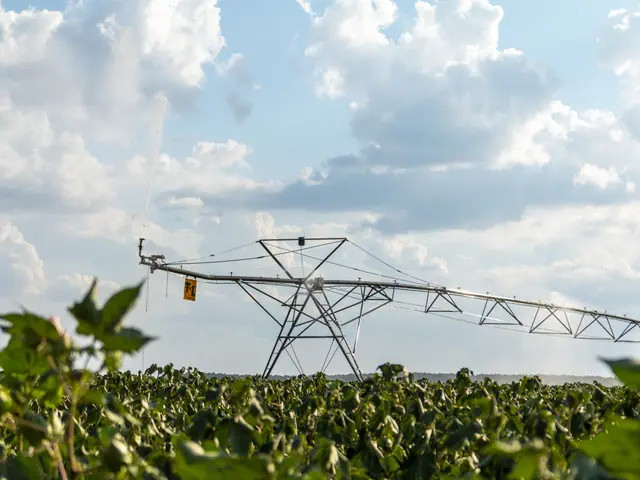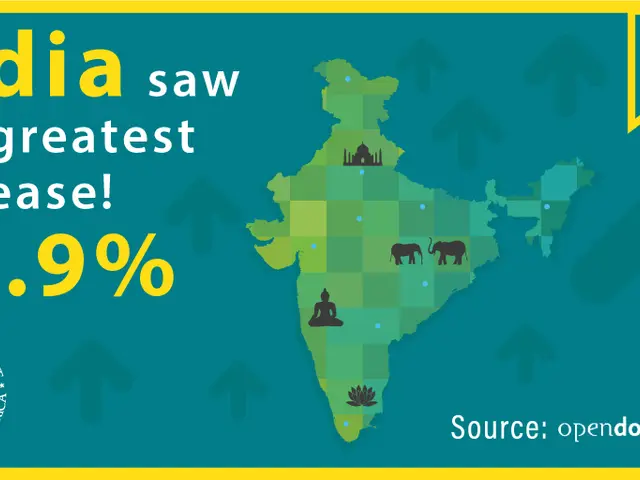Migration's Influence on the World's Economic Landscape and Social Structures
Migration: A Transformative Force
Migration encompasses the movement of individuals between locations, a process that spans vast distances and multiplies in variety due to multiple motivations and circumstances. At its core, migration can be divided into two principal types: voluntary and involuntary. Voluntary migration occurs when individuals make a conscious decision to leave their home for improved prospects, often in terms of employment or living conditions. In contrast, involuntary migration, comprising refugees and asylum seekers, is propelled by external factors such as conflict, persecution, or natural disasters, compelling individuals to seek refuge and survival.
The driving forces behind migration are intricate and manifold. Economic prosperity is a persuasive factor, as individuals often gravitate toward regions offering ample job opportunities and higher wages. In today's globalized economy, the interconnectedness of markets amplifies the potential for mobile labor to meet available job vacancies and increase productivity. Additionally, conflict and turmoil can compel individuals to migrate in search of stability and security, resulting in the displacement of numerous families from war-torn zones or unrest-stricken regions.
The aftermath of environmental destruction is increasingly recognized as a significant catalyst for migration. Scarcity of resources, natural calamities, and climate change jeopardize communities' livelihoods, compelling them to relocate. The escalating relevance of these factors calls for a keen understanding of their intricacies and implications, particularly as they contribute to migration trends themselves.
Globalization intensifies these patterns of migration by nurturing economic, social, and cultural ties across borders, thus facilitating travel and settlement for migrants. As the significance of migration unfolds, so does our appreciation of its various forms, underlying reasons, and broader societal and economic implications.
The Economic Impact of Migrants
Migrants contribute significantly to the economies of their host countries by generating considerable influence on labor markets, entrepreneurship, and innovative practices. Innumerable industries benefit from the influx of migrant workers, who fill critical skill gaps and labor shortages, thereby ensuring the sustained growth and profitability of established sectors. Moreover, migrants' participation in the workforce fosters economic growth not only by supporting existing industries but also by propelling innovation.
Innovation is further fueled by the entrepreneurial spirit of migrants, many of whom choose to establish their own businesses. By catering to the needs of their local communities, migrant entrepreneurs create new job opportunities and drive growth in their host countries. Research indicates that immigrants have a higher likelihood of starting businesses than native-born individuals, thus contributing to a dynamic and competitive economic environment.
Beyond labor market contributions, the remittances sent by migrants back to their homelands bolster economic development by providing substantial financial support for essential household expenditures such as food, healthcare, and education. In many cases, remittances represent a vital source of income and contribute significantly to GDP, particularly in countries experiencing economic stagnation.
The Role of Remittances: A Double-Edged Sword
Remittances play a vital role in shaping the economies and societies of numerous countries, acting as a primary source of external financing for developing nations. In 2022 alone, remittance flows to low- and middle-income countries reached an estimated $626 billion, emphasizing the profound impact of these funds on local economies.
While the benefits of remittances are considerable, over-reliance on these external funds may introduce vulnerabilities, particularly during economic downturns or periods of global uncertainty. The unpredictability of remittance flows can destabilize communities and hinder sustainable development efforts, highlighting the need for a balanced approach that incorporates other economic strategies in addition to remittances.
Social Integration and Cultural Exchange
Migration significantly affects host societies by engendering complexities in social integration and fostering cultural exchange. As immigrants populate new communities, they introduce unique customs, traditions, and perspectives, which ultimately enrich cultural landscapes. The fusion of societies creates an environment conducive to creativity, innovation, and a more cosmopolitan worldview.
Integration, however, remains a challenging undertaking for many migrants. Discrimination, xenophobia, and language barriers impede the assimilation of immigrants, creating divisions within host societies. Public policies that promote inclusivity and cultural understanding play a vital role in bridging these gaps and fostering harmonious relations between the local population and newcomers.
Challenges Faced by Migrants
The journey of migration is fraught with obstacles and hardships. Legal status plays an essential role in shaping migrants' experiences, as undocumented individuals may live under the constant threat of deportation, depriving them of access to essential resources such as employment opportunities and healthcare services.
Access to services, education, and housing remains elusive for numerous immigrants, particularly those who hail from marginalized backgrounds. Employment discrimination persists, forcing migrants to accept low wages and substandard working conditions. The prevalence of social isolation further exacerbates the difficult circumstances faced by migrants, eventually leading to feelings of loneliness and displacement.
Impact on Home Countries
Migration significantly reshapes the socio-economic landscapes of home countries, offering both opportunities and challenges. The return of skilled individuals following international stints can be enormously beneficial, infusing home markets with valuable expertise, skills, and innovative ideas, thereby fostering growth and enhancing productivity.
Conversely, the phenomenon of brain drain poses a significant concern, as highly skilled individuals gravitate toward developed countries in search of better job prospects and opportunities. The loss of human capital can hinder national development efforts, as countries often invest heavily in the education and training of these individuals, only to see them contribute to the economies of other nations.
Future Trends in Migration
The patterns of global migration are poised to evolve in response to various factors, among which climate change is a leading concern. As climate change intensifies, rising sea levels and extreme weather events threaten to displace millions of people in low-lying coastal areas and ecosystems heavily reliant on consistent environmental conditions. The displacement of communities by natural disasters and dwindling resources raises concerns about their resettlement and reintegration into new social and economic contexts.
Political instability also shapes migration patterns, as conflict, authoritarian regimes, or economic hardship encourage people to seek safety and better opportunities in more stable regions. The geopolitical landscape is consequently expected to play a crucial role in shaping migration trends in the future.
Technological advancements, such as the rise of remote work and enhanced data analysis capabilities, are likely to reorganize migration patterns, making it easier for migrants to pursue work opportunities without losing connections to their home countries.
In conclusion, the future of migration will be defined by the interplay of factors such as climate change, political instability, and technology. A nuanced understanding of these dynamics is vital for policymakers as they design strategies that balance the challenges and opportunities afforded by this global phenomenon.
Call to Action
The multi-faceted impacts of migration call for the active participation of individuals and communities in fostering informed, responsible, and compassionate discussions surrounding these pressing issues. By engaging in dialogue, raising awareness, and advocating for policies that protect the rights of migrants and promote sustainable development, we can work collectively to address the complexities of migration and create a more inclusive and understanding society. The future of migration is not a distant reality but a present-day reality shaping our communities and societies, calling for our collective attention and action.
- Migrants' contributions to global business extend beyond labor markets, as they foster innovation through entrepreneurship and the establishment of new businesses, driving growth in economies and job creation.
- In the realm of education, migrants can bolster intellectual growth by sharing their diverse cultural perspectives, promoting a more diverse and inclusive learning environment.
- Healthcare policies should consider the unique challenges faced by migrants, ensuring access to essential services regardless of their legal status, enhancing overall population health and productivity.
- In the sphere of technology, advancements such as remote work can potentially democratize access to jobs, allowing migrants greater flexibility and mobility in pursuing employment opportunities.
- As leaders in various fields decide on policies that address migration, policymakers must recognize and prioritize the role of politics in shaping migration patterns, crafting solutions that account for factors such as conflict, economic instability, and the environment.








